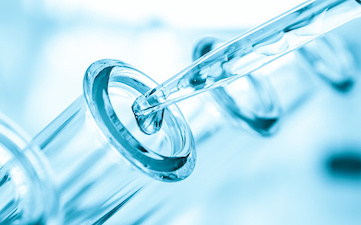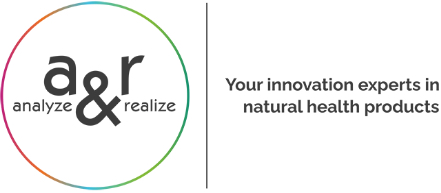
Consumers’ perception of healthy living is shifting from only addressing physical health to a more holistic approach where exercise, food and mental wellbeing play a key role. According to Euromonitor, 62% of global consumers associate health with mental wellbeing.
Euromonitor also reported that one of the five trends impacting consumers’ health and nutrition is stress and anxiety. With current lifestyle choices such as increased social media/digital exposure, fast and on-the-go lifestyles as well as the environmental and political environment, consumers are feeling more under pressure/tired, stressed, and anxious. This health category is the perfect indication for adaptogens.
Adaptogens have been used for centuries and are very common in Ayurvedic and traditional Chinese medicine. More recently, adaptogens are becoming increasingly popular in Western countries as consumers look for alternatives to traditional pharmaceutical treatments. Examples of adaptogens are rhodiola, holy basil, ashwagandha, schisandra, reishi, and turmeric.
In general terms, adaptogens are natural substances (herbs, roots, or mushrooms) that help the body adapt to stress. Based on a reflection paper by the European Medicines Agency’s (EMA), the term adaptogen or adaptogenic substances was defined as “substances that have the capacity to normalize body functions and strengthen systems compromised by stress. They are reported to have a protective effect on health against a wide variety of environmental assaults and emotional conditions.” EMA has established monographs for herbals that have adaptogenic properties, such as:
- Rhodiola rosea used for the temporary relief of symptoms of stress, such as fatigue and sensation of weakness.
- Eleutherococcus senticosus used for the relief of symptoms of asthenia (abnormal loss of strength and energy) such as tiredness and weakness.
- Panax ginseng used for treating tiredness and weakness.
The use of adaptogens by food/beverage companies has also increased in recent years. An example of such products is REBBL, with innovative adaptogen-infused beverages. However, health claims on these ingredients in food/food supplements are limited. To be able to make health claims on adaptogens, investing in clinical research in mandatory. The data could then be used to support an EFSA health claim application.
Interested in supporting your ingredient with clinical research?
a&r has established a collaboration with daacro, a CRO with particular expertise in the assessment of effects of substances on anxiety, depression, stress, and cognitive function.
Starting in 1993, the well-known “Trier Social Stress Test (TSST)” was introduced to the scientific community, and when it comes to inducing acute psychosocial stress under controlled laboratory conditions, the protocol has remained the gold standard until today. During the last 30 years, the methodology was applied and enlarged in basic research and applied product developments. TSST has been performed by many academic groups providing a large database on various outcomes activated or suppressed by an acute stressor. Therefore, these outcomes can serve well as endpoints in clinical trials to prove efficacy of an intervention. Extensions include modified protocols for certain age groups (e.g. children), better cost efficiency (group testing, virtual reality testing) or integrating certain assessments (e.g. cognitive tests).
The short (15 minutes) protocol has been applied thousands of times. It reliably activates both main stress systems, the autonomic nervous system (ANS) and the hypothalamus-pituitary-adrenal axis (HPA) and triggers an emotional and physiological response. TSST was further developed by daacro’s founders, and the team looks back on many years of experience. Additionally, daacro’s CRO was certified in November 2019 under ISO 9001:2015, strengthening the quality requirements on the TSST.
In line with cosmetic, nutritional, or pharmacological product developments, interventions and modes of action in stress, the various fields of measurement of TSST were successfully applied to skin & hair, perspiration, gut-brain-interaction, neuro- & immune-enhancers, learning & memory, sleep, anxiety & depression, etc.
Different standardized modules of the TSST allow the assessment of treatment effects on the following variables: (1) Psychological Response Measures (e.g. mood, perceived stress & anxiety, memory, attention); (2) Autonomic Response Measures (e.g. HR, BP, catecholamines, EDA, temperature); (3) Endocrine Response Measures (e.g. ACTH, serum & saliva cortisol, growth hormone, prolactin, DHEA); (4) Immune Response Measures (e.g. cytokines, leucocytes subsets); (5) Hematological Response Measures (e.g. hematocrit, hemoglobin); (6) Metabolic Response Measures (e.g. hemoconcentration, blood coagulation); (7) Gene Expression; (8) Psychomotor Response Measures (e.g. voice, dexterity, EMG). Further and depending on the choice of variables, this might also help understand underlying mechanisms. In sum, TSST is a well-accepted, precise, predictive and cost-efficient method to be integrated in clinical trials in a multitude of stress conditions, health impairments, and diseases associated with stress.
Stress management goes hand in hand with another food supplement category that is currently seeing growth – sleep. This clinical approach can be useful to support not only adaptogens but also other stress release ingredients in food supplements and even to support sleep quality.
If you would like to know more about a&r and daacro’s collaboration/services, please get in touch with us for more information. We would be happy to support you!
